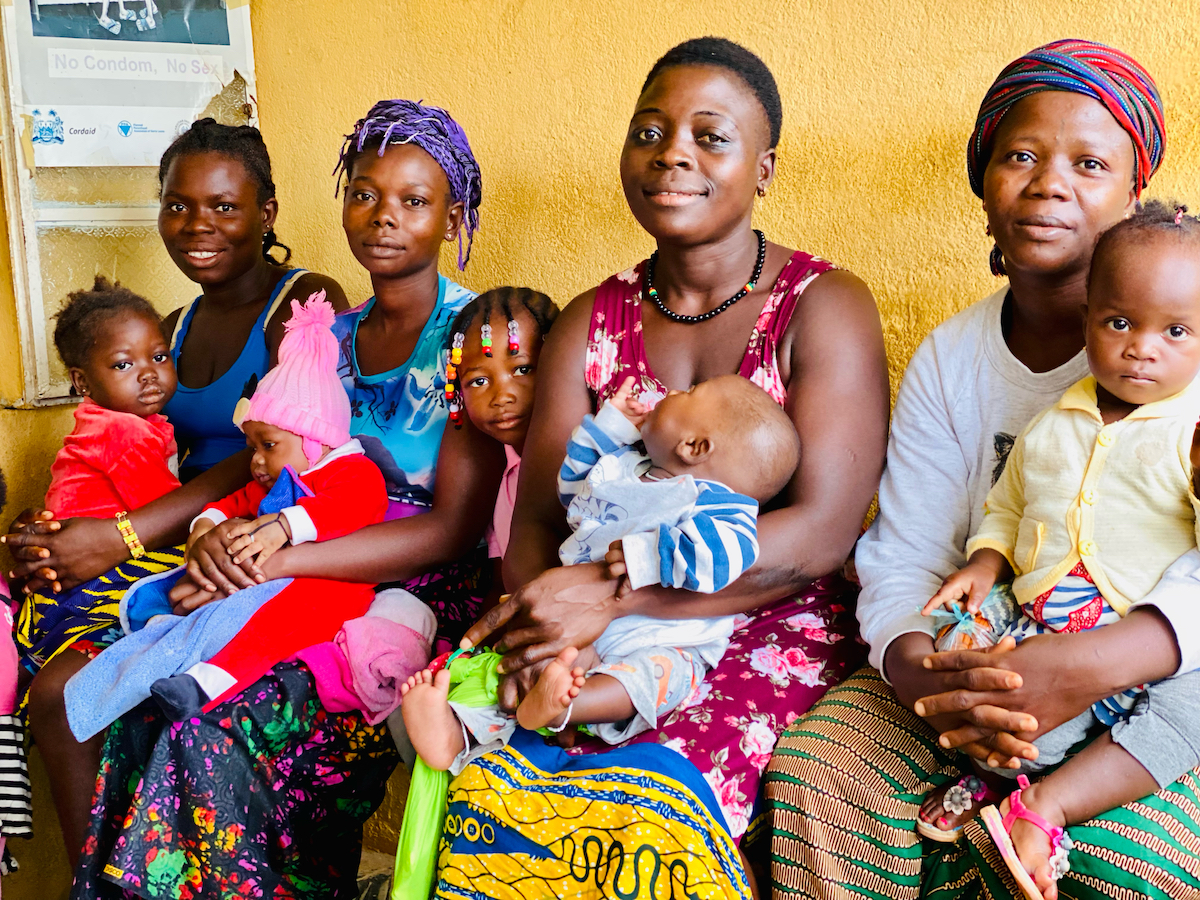Among farmers in Sierra Leone, rice is the most important staple crop with 85% of farmers cultivating rice during the rainy season. Yet many communities lack a stable supply of nutritious food due to limited access to quality inputs, such as seeds, and limited training in improved farming practices.
Children bear the brunt of this challenge. According to UNICEF, malnutrition is widespread across Sierra Leone, with 33% of children under-five years experiencing stunted growth and over 175,000 suffering from acute malnutrition, annually. Of these, almost 40% of them are severely malnourished.
Addressing the challenge
Solidaridad introduced the Resilient Food and Nutrition Security (RFANS) project in 2021 to help women’s groups and caregivers improve food security and nutrition in rural communities in Sierra Leone.
Funded by the Church of Jesus Christ of Latter-Day Saints, the project seeks to increase vegetable production, reduce the malnutrition rate among children under five years of age, and improve household food production and nutrition security. The project also helps increase incomes and access to financial resources through skills development, and market linkages via an integrated value chain in the districts of Bo, Moyamba, and Kenema.
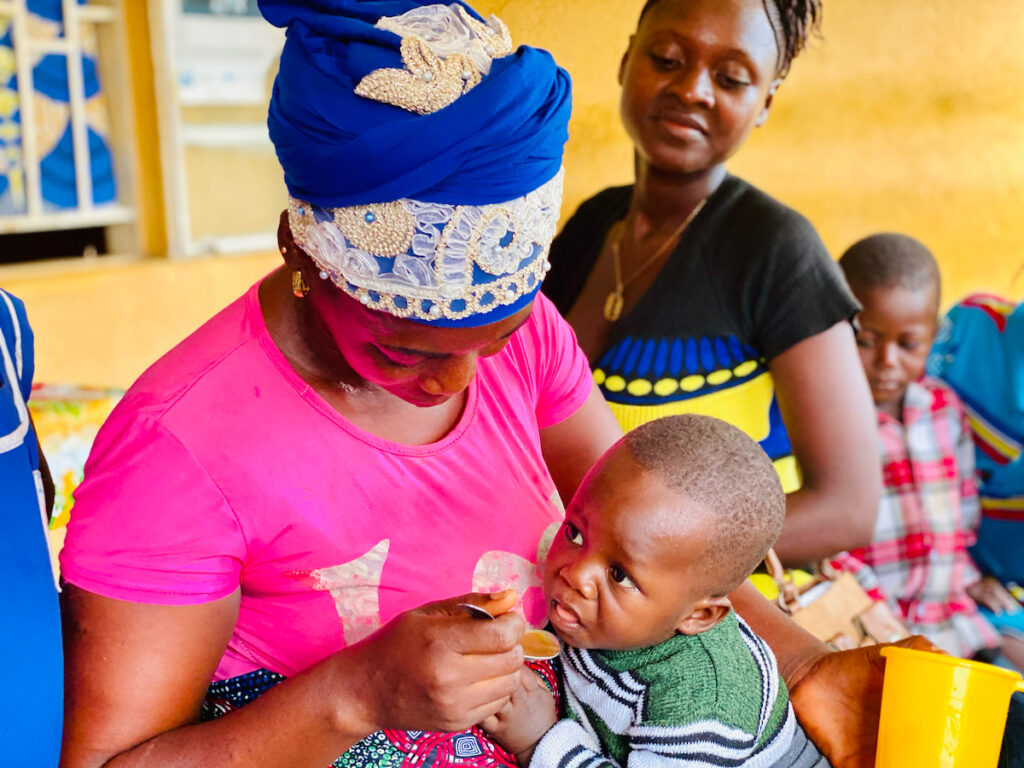
Fatamata begins a new chapter
Prior to joining the RFANS project, Fatamata Rogers, a 46-year-old mother of three, relied on small-scale subsistence rice farming to provide for her family’s needs. As a farmer, she confronted a number of challenges, including access to quality farm tools, pesticides, and seeds, which resulted in low productivity and affected her ability to provide a healthy, nutritious diet for her children.
Once in RFANS, Fatamata and other women received training on vegetable production to add much-needed diversity to diets. They learned how to select and cultivate vegetables with high nutritional value that could also become a source of income.
The training included lessons on climate-smart agriculture, which helped her see farming as a year round vocation. She shifted her focus from just rice farming to cultivating vegetables as well, in and out of season.
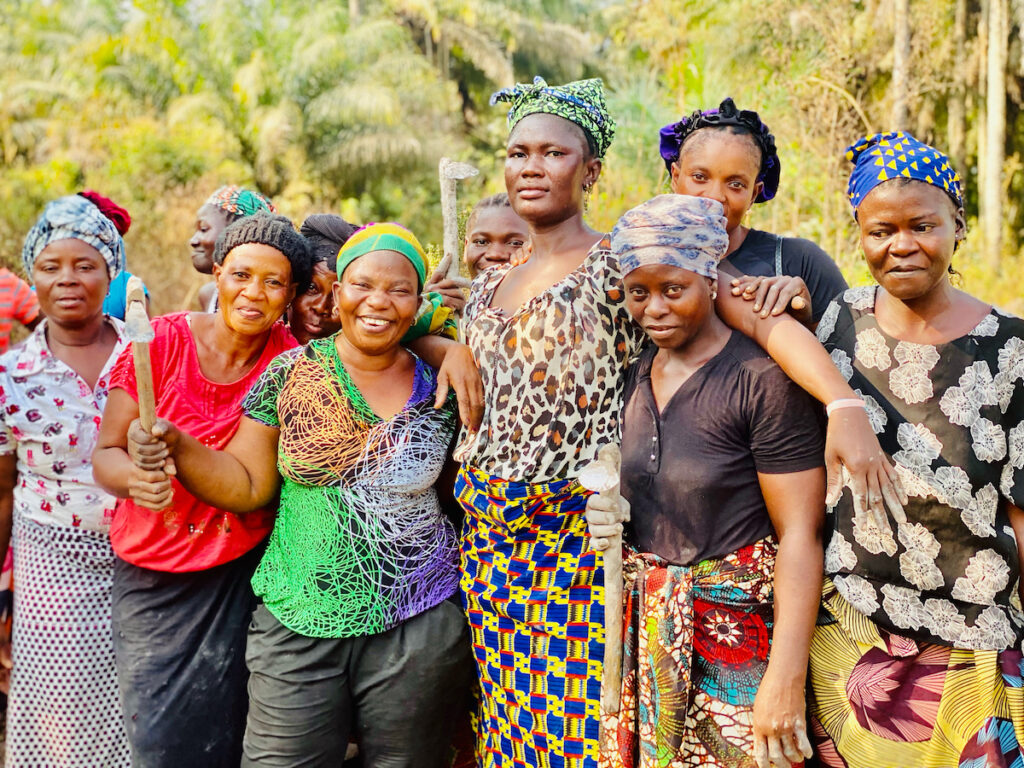
“We now work in the rainy and dry season to cultivate different vegetables such as okra, cabbage, cucumber, carrot, and pepper, among others which we also sell throughout the year to improve our income,” she says.
Fatamata is now the coordinator of four groups under the project, one of which is “Help Women Timap”, comprising over 30 women, mostly mothers and caregivers of children under-five.
Financial freedom for Fatamata and others
Aside from gaining the knowledge and skills for vegetable cultivation, Fatamata and women in her groups were also introduced to the Village Savings and Loans Association (VSLA) concept, a community-based savings and loans approach that allows members to manage their own resources.
Financial literacy lessons have helped cultivate reliable access to financial resources to boost livelihood opportunities for Fatamata and others. After the group pulled together their savings, the 60 women’s groups now have access to about $20,000 US dollars, which they can invest in their farms on a rotating basis.
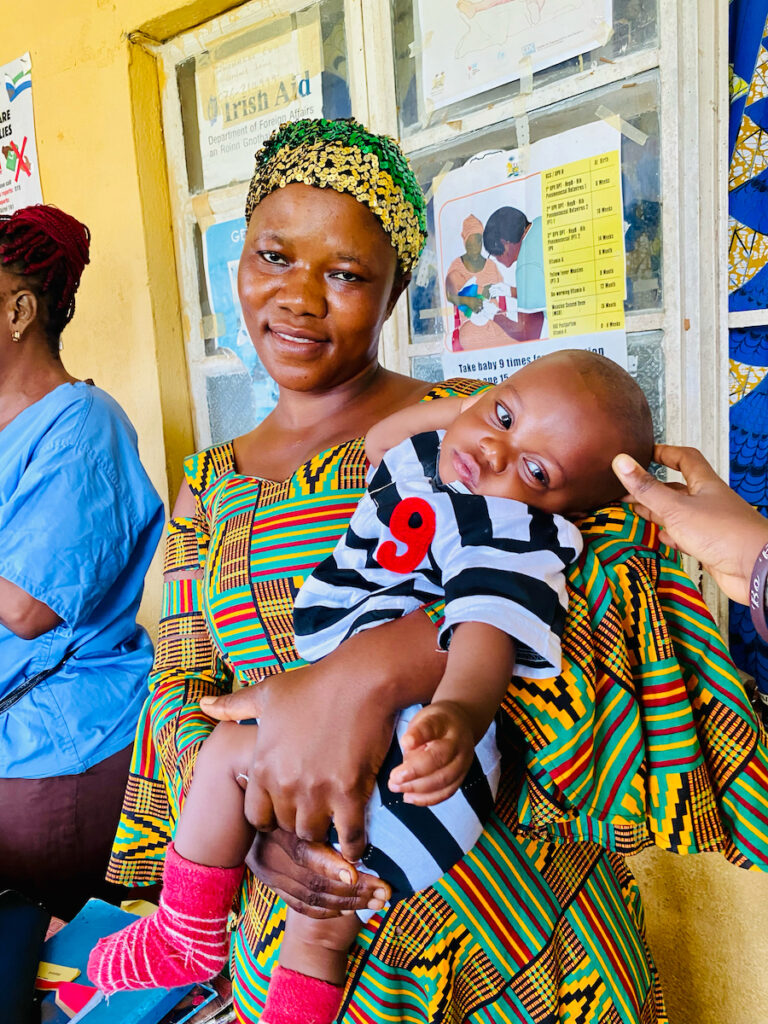
RFANS gets results!
Along with learning to cultivate vegetables, women have learned how to prepare baby foods with high nutritional value using the vegetables they grow. Solidaridad also collaborated with the District Health Medical Team of the Ministry of Health and Sanitation and the Ministry of Agriculture to train 150 mothers engaged in breastfeeding, caregivers and pregnant women on the preparation of homemade baby food using local recipes.
Mamie Musa, one of the trainees, recalls how as a breastfeeding mother she could not afford to buy imported baby foods, but after the training she is now able to prepare nutritious baby food using orange fleshed sweet potatoes, plantain and other ingredients under safe conditions.
The women shared these stories with a delegation from the Church of Jesus Christ of Latter-day Saints led by Kenneth Pambu, the Stake President of the church, during a field visit with the Solidaridad team in February 2023. The visit offered them the opportunity to interact with the women farmers, learn about the impact of the intervention, and solicit feedback.
“Getting to see the impact of the work done by Solidaridad through the support of the church was the key highlight of our visit,” says Ivan Bukumbi, Welfare and Self-Reliance Consultant of the church.
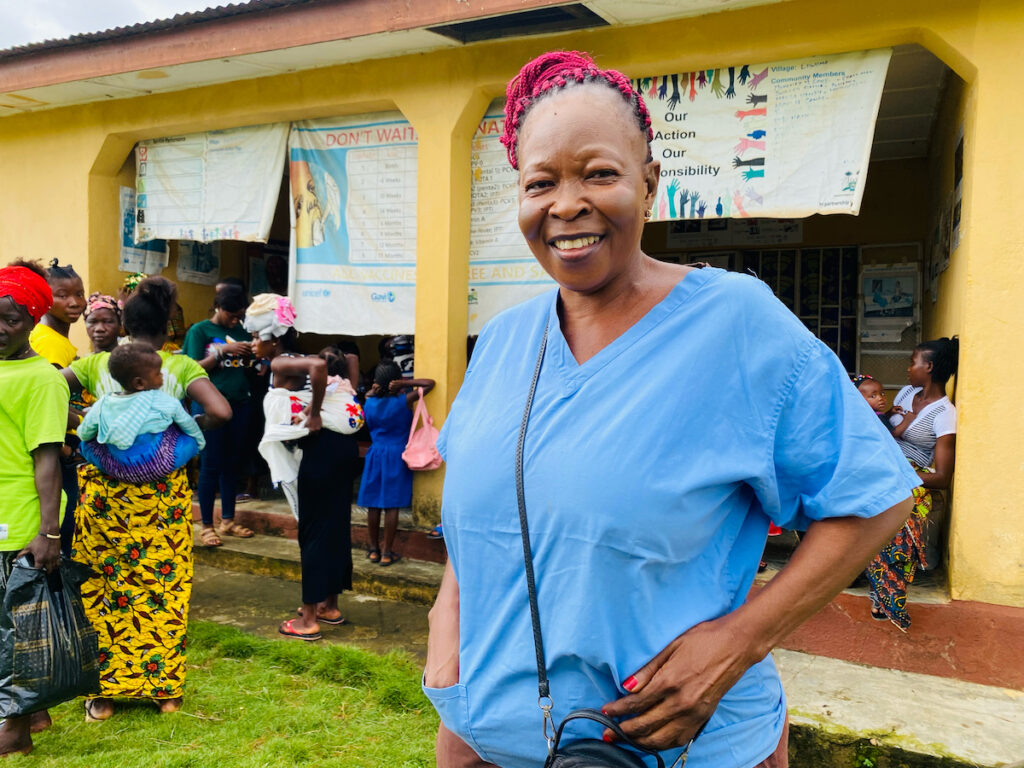
“The intervention is helping health workers to reduce malnutrition, especially in the rural areas where the rate of malnutrition is high.
Mary Lamin, a community health officer at the Kenema district.
As a result of the successful implementation of the first phase of the RFANS project, a second phase is currently underway to increase the reach of the intervention. The project is implemented in collaboration with the Ministry of Health and Sanitation and the Ministry of Agriculture in Sierra Leone.
So far, 75 women’s groups comprising 1,875 farmers in Bo, Moyamba and Kenema districts have been supported with farm tools, vegetable seeds, livestock and financial literacy training under the project, which contributes to the Government of Sierra Leone’s agenda to improve nutrition in the country.
“The involvement of the women-led groups in the intervention played a critical role in empowering the women to be resilient and adapt to climate change,” said Luseni Kappia, programme manager at Solidaridad in Sierra Leone.
“We can see how access to knowledge, technology and financial resources in a timely manner helps women to adapt to climate change and ensure food and nutrition security.”

